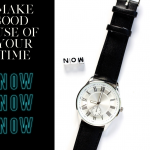 What do you think when you hear the word ego? Do you immediately think of good or bad things? It’s easy to assume it’s all bad because the word is often used when referring to a person who is arrogant or cocky. We will often say they have a “huge ego.”
What do you think when you hear the word ego? Do you immediately think of good or bad things? It’s easy to assume it’s all bad because the word is often used when referring to a person who is arrogant or cocky. We will often say they have a “huge ego.”
However, ego is certainly not inherently ‘bad’, indeed it is essential to our being able to live an autonomous and self-directed life. As with so many things that relate to health – physical, mental and emotional – whether something is healthy or not comes down to balance. Is there an unhealthy deficit or excess? Or is there a healthy, optimal balance?
Looking at ‘ego’ with a more neutral lens will enable us to understand the meaning of the word better, and ultimately, of ourselves. Before we look at the negative and positive aspects of the ego, let us first understand what it truly means.
The word ego comes from the Latin word meaning ‘I.’ It is often used when referring to oneself. For example, the Latin translation of ‘I love you’ is literally ‘Ego amo te.’ Nowadays, we describe the ego as a part of a person that defines itself as an entity separate from others. Simply put, the ego is part of our identity.
How Does Our Ego Influence Us?
In Freud’s theory, the ego refers to the part of our personality that regulates our ‘id,’ or a person’s animalistic desires. It also helps balance our ‘superego,’ or the moral and social standards that we uphold.
Our ego can influence our behavior in different ways. Because of our ego, we can control ourselves from acting upon our basic urges. We become more aware of our surroundings and the social mores that govern us. For example, if someone wrongs us, our primary animalistic response is to retaliate in ways that could harm them. However, because we are aware of reality (and the consequences of taking harmful actions), we can respond more appropriately, in ways that are more socially acceptable.
 The Two Sides of Ego
The Two Sides of Ego
The Negative
Our first thoughts of ego usually relate to someone being arrogant or self-centered. This would be the negative aspect of ego. A “better-than” attitude begins to develop when the negative ego dominates. This type of person will think more about their image and reputation. They will do things that will make them appear better than others.
The negative ego is also related to various personality issues, such as egotism, egocentrism, and egoism. Egotism is when a person evaluates themself more favorably than what is reality. Egocentrism is when the person interprets events solely based on their views. Egoism refers to the motivation to act purely on self-interest.
The Positive
Stripping off our initial (and mostly negative) connotation of the word ego, we see that a positive and healthy ego can help us tremendously. Our ego is meant to be a way for us to view the world as it helps us mediate our surroundings.
Through a positive ego, we can see things rationally and realistically. When our positive ego governs us, we do not act purely for our own interests. Instead, we become more objective and see things in a neutral, less judgmental way.
Using Ego to Your Advantage
Our ego is part of who we are; therefore, it is possible to experience both its negative and positive aspects. There are situations wherein we fail to see things objectively and only want to acknowledge our own views. There are situations whereby we think favorably of ourselves over others, ignoring rational thought and complete objectivity.
So how can you make use of your ego to your advantage? Simple – keep in mind that there are two sides to your ego, and it can sometimes be easy to swing towards the negative side. Having that awareness allows you to become more mindful of your thoughts, actions, and behaviors. This will help you be more rational, realistic, and objective while avoiding the trappings of being self-centered and selfish.
The negative ego is reflected in behaviors that put you always first above others, whether related to needs, opinions, or self-perception. The positive ego has a more objective take on situations, which lets you navigate life more realistically and rationally.
 What is the Difference Between Narcissist and Egotist
What is the Difference Between Narcissist and Egotist
The difference between a narcissist and an egotist may not be as clear as you think. In fact, there is a lot of overlap between the two personality types. The main difference is that narcissists are more likely to take credit for other people’s work, whereas an egotist will typically use their talents to make themselves look good.
Narcissists have a false sense of entitlement and believe that they should be treated like royalty because they are so special. They have very low self-esteem and are usually very insecure about themselves. An egotist, on the other hand, has high self-esteem and feels confident in their skills and abilities.
Narcissist:
A person with Narcissistic Personality Disorder (NPD) has a grandiose sense of self-importance, a need for admiration, and a lack of empathy. They are often preoccupied with fantasies of unlimited success, power, beauty or ideal love.
Egotist:
Someone who is an egotist is very interested in themselves and their own personal needs. They are not interested in the needs or feelings of other people.
A narcissist is a person who has an inflated sense of their own importance and a deep need for admiration, as evidenced by fantasies about success, power, beauty, and ideal love.
An egotist is a person who is excessively preoccupied with themselves.
 What happens when you hurt a narcissist’s ego
What happens when you hurt a narcissist’s ego
Narcissists are vulnerable to injury to their egos. When they are criticized or feel rejected, they often lash out and blame others for their failures. They may also use a number of defense mechanisms, such as denial or rationalization, in an attempt to deflect responsibility.
They are often very sensitive to criticism and can take offense to the slightest remark. They are also very sensitive about their self-image and will not want to be seen as anything less than perfect or superior.
Narcissists can be very dangerous when they feel threatened because they will lash out with aggression and violence.
If you hurt their ego, they will feel as if you are challenging their sense of superiority or importance. They will become very offended and angry because it is seen as a personal attack on them.





Leave a Reply